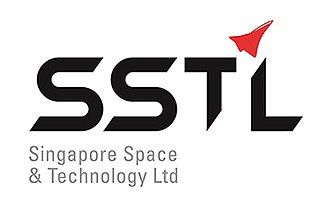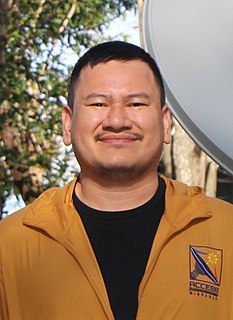
Japan–Philippines relations and, span a period from before the 16th century to the present. According to a 2011 BBC World Service Poll, 84% of Filipinos view Japan's influence positively, with 12% expressing a negative view, making Philippines one of the most pro-Japanese countries in the world.

Science and technology in the Philippines describes scientific and technological progress made by the Philippines and analyses related policy issues. The main agency responsible for managing science and technology (S&T) is the Department of Science and Technology (DOST). There are also sectoral councils for Forestry, Agriculture and Aquaculture, the Metal Industry, Nuclear Research, Food and Nutrition, Health, Meteorology, Volcanology and Seismology.

Philippines–Russia relations is the bilateral relationship between Russia and the Philippines. Both countries are full members of APEC.

Cesar Antonio Velasquez Purisima is a Filipino accountant and financial expert. He was the Secretary of Finance of the Republic of the Philippines under the administration of President Benigno S. Aquino III. He also served as the chair of the Cabinet Economic Development Cluster and member of the Monetary Board of the Bangko Sentral ng Pilipinas. Purisima is a multi-awarded finance minister, recognized 7 times in 6 consecutive years by various international institutions for turning the Philippine economy around and restoring investor confidence.

José Ruperto Martín Marfori Andanar is a former Filipino television news personality and news anchor, radio commentator, podcaster, and voice-over artist who last worked for News5. He is currently the Secretary of the Presidential Communications Office of the Philippines under the Duterte administration.
The economic history of the Philippines chronicles the long history of economic policies in the nation over the years.

The space program of the Philippines is currently maintained by the Philippine Space Agency (PhilSA) together with various agencies under the Department of Science and Technology (DOST). The space program includes space research and development, and is funded through the National SPACE Development Program (NSDP) by the DOST and received an initial budget of ₱1 billion in 2020.

The Philippine Space Agency (PhilSA) is the national space agency of the Philippines.

Diwata-1 also known as PHL-Microsat-1 was a Philippine microsatellite launched to the International Space Station (ISS) on March 23, 2016, and was deployed into orbit from the ISS on April 27, 2016. It was the first Philippine microsatellite and the first satellite built and designed by Filipinos. It was followed by Diwata-2, launched in 2018.

Diwata-2 or Diwata-2B is a Philippine microsatellite launched on October 29, 2018. It is the first satellite launched under the STAMINA4Space program.

The Philippine Scientific Earth Observation Microsatellite (PHL-Microsat) was a satellite program carried by the Department of Science and Technology (DOST) of the Philippines in cooperation with the Tohoku and Hokkaido Universities of Japan.

The National Government Administrative Center (NGAC) is a 200-hectare (490-acre) mixed-used development situated in New Clark City, Capas, Tarlac. It will primarily host facilities for the Philippine government such as offices of various government agencies, government housing units, sport facilities and other support services facilities. The area is owned and managed by the Bases Conversion and Development Authority.
The Australian Space Agency is Australia's national agency responsible for the development of Australia's commercial space industry, coordinating domestic activities, identifying opportunities and facilitating international space engagement that include Australian stakeholders. Its headquarters are located in Adelaide, the southeastern capital city of South Australia.

The Singapore Space and Technology Ltd (SSTL) is a non-government space organisation based in Singapore, serving as an advocate and thought leader in the industry.

Rogel Mari D. Sese is a Filipino astrophysicist who is known for being a proponent of space science in the Philippines.
Joel Joseph Sacro Marciano Jr. is a Filipino engineer, academic and the first and current Director General of the Philippine Space Agency, a government agency under the Office of the President in charge of the Philippines' national space program.
Maya-2 is a Filipino nanosatellite. It succeeded Maya-1, the first Filipino nanosatellite, which was deorbited in November 2020.

The National Task Force to End Local Communist Armed Conflict (NTF-ELCAC) is a task force organized by the government of the Philippines to respond and raise awareness to the ongoing communist rebellion in the Philippines.
The Multispectral Unit for Land Assessment (MULA) is a planned Filipino satellite. Upon completion it will become the largest Filipino-made satellite.
















